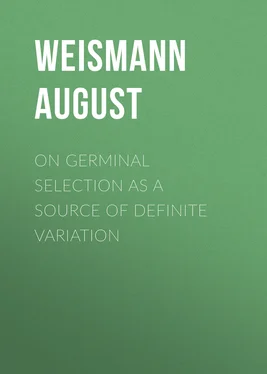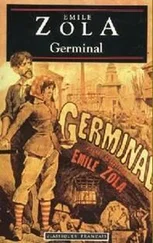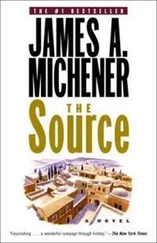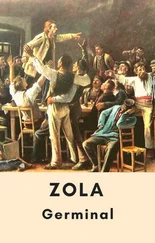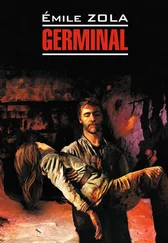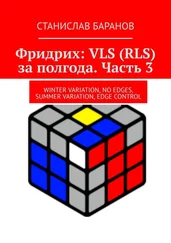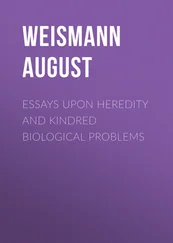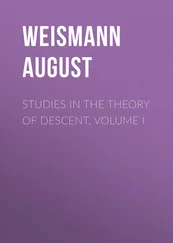August Weismann - On Germinal Selection as a Source of Definite Variation
Здесь есть возможность читать онлайн «August Weismann - On Germinal Selection as a Source of Definite Variation» — ознакомительный отрывок электронной книги совершенно бесплатно, а после прочтения отрывка купить полную версию. В некоторых случаях можно слушать аудио, скачать через торрент в формате fb2 и присутствует краткое содержание. Жанр: foreign_antique, Биология, foreign_edu, на английском языке. Описание произведения, (предисловие) а так же отзывы посетителей доступны на портале библиотеки ЛибКат.
- Название:On Germinal Selection as a Source of Definite Variation
- Автор:
- Жанр:
- Год:неизвестен
- ISBN:нет данных
- Рейтинг книги:4 / 5. Голосов: 1
-
Избранное:Добавить в избранное
- Отзывы:
-
Ваша оценка:
- 80
- 1
- 2
- 3
- 4
- 5
On Germinal Selection as a Source of Definite Variation: краткое содержание, описание и аннотация
Предлагаем к чтению аннотацию, описание, краткое содержание или предисловие (зависит от того, что написал сам автор книги «On Germinal Selection as a Source of Definite Variation»). Если вы не нашли необходимую информацию о книге — напишите в комментариях, мы постараемся отыскать её.
On Germinal Selection as a Source of Definite Variation — читать онлайн ознакомительный отрывок
Ниже представлен текст книги, разбитый по страницам. Система сохранения места последней прочитанной страницы, позволяет с удобством читать онлайн бесплатно книгу «On Germinal Selection as a Source of Definite Variation», без необходимости каждый раз заново искать на чём Вы остановились. Поставьте закладку, и сможете в любой момент перейти на страницу, на которой закончили чтение.
Интервал:
Закладка:
The fact is, we can make no show of accounting for the complex phenomena of heredity with mere material units; we can never reach these phenomena from below, but must begin farther up and make the assumption of vital units and hereditary units, if there is to be any advance in this field.
It is undoubtedly a splendid aim which the newly founded science of developmental mechanics has set itself of laying bare the entire causal line leading from the egg to the finished organism; yet, however much we may wish to see the success of this plan realised, we cannot disguise the fact that little or nothing is to be accomplished by it in the settlement of the problems of heredity. It is impossible to suspend the study of heredity until this mechanics is completed, and even if we could it would help us little, for the riddles of heredity are not concealed in the ontogenesis of types, or, to give an example, in the developmental history of man as a race , but in the ontogenesis of individuals , in that of a definite and particular man. This last ontogenesis exhibits the phenomena of variation, of reversion, of the predominance of the one or the other parent, etc., and no one is likely to believe that inductive evolutional inquiry alone will ever afford us knowledge of these minute and delicate processes, which, in their bearing on the total resultant development, phylogenesis, are after all the most important of all.
There is, accordingly, no choice left. If we are really bent on scientifically investigating the question of heredity, we are obliged perforce to form from the observed facts of heredity a highly detailed and elaborate theory, on the basis of which we can propound new questions, which will give rise in turn to new facts, and thus will exercise a retroactive influence on the theory, improving and transforming it.
This is precisely what I have sought to accomplish by my theory of Germ-plasm, as I stated in the Preface to the book bearing that name. It was never intended as a theory of life, nor, indeed, primarily, as a theory of evolution, but first and above all as a theory of heredity. I cannot understand, therefore, the animadversion, that my theory in no way furthers our insight into the mechanics of development. That is not its purpose; in fact, it takes the ultimate physical and chemical processes which make up the vital processes for granted; and inevitably it is constrained to do so. Its aim is to put into our hands a serviceable formula by means of which we can go on working in the field of heredity at any rate, and, if I am not mistaken, also in that of evolution. To me, at least, the newest results of developmental mechanics do not seem so widely at variance with the theory of determinants as might appear at first sight; so far as I can see, they can be quite readily made to harmonise with the theory, provided only the initial stage of the disintegration of the germ-plasm in the determinant groups be not invariably placed at the beginning of the process of segmentation, but be transferred according to circumstances to a subsequent period. The exact state of things cannot as yet be determined, so long as the mass of facts is still in constant flux.
In any event I still hold fast to the hope which I expressed in the Preface to my Germ-plasm , that despite the unavoidable uncertainties in its foundation my theory would yet prove more than a mere work of imagination, and that the future would find in it some durable points which would outlive the mutations of opinion. It is possible that one of these durable gains is my much impugned idea of determinants, and in fact not only will the present essay be made to rest on this idea, but it will also defend it on new grounds, although primarily only as a representation of something which we do not as yet exactly know, but which still exists and on which we can reckon, leaving it to the future to decide the greater or less resemblance of our hypothetical construct to nature.
The real aim of the present essay is to rehabilitate the principle of selection. If I should succeed in reinstating this principle in its emperilled rights, it would be a source of extreme satisfaction to me; for I am so thoroughly convinced of its indispensability as to believe that its demolition would be synonymous with the renunciation of all inquiry concerning the causal relation of vital phenomena. If we could understand the adaptations of nature, whose number is infinite, only upon the assumption of a teleological principle, then, I think, there would be little inducement to trouble ourselves about the causal connexion of the stages of ontogenesis, for no good reason would exist for excluding teleological principles from this field. Their introduction, however, means the ruin of science.
August Weismann.
Freiburg, Nov. 18, 1895.
GERMINAL SELECTION
Numerous and varied are the objections that have been advanced against the theory of selection since it was first enunciated by Darwin and Wallace—from the unreasoning strictures of Richard Owen and the acute and thoughtful criticisms of Albert Wigand and Nägeli to the opposition of our own day, which contends that selection cannot create but only reject, and which fails to see that precisely through this rejection its creative efficacy is asserted. The champions of this view are for discovering the motive forces of evolution in the laws that govern organisms—as if the norm according to which an event happens were the event itself, as if the rails which determine the direction of a train could supplant the locomotive. Of course, from every form of life there proceeds only a definite, though extremely large, number of tracks, the possible variations , whilst between them lie stretches without tracks, the impossible variations , on which locomotion is impossible. But the actual travelling of a track is not performed by the track, but by the locomotive, and on the other hand, the choice of a track, the decision whether the destination of the train shall be Berlin or Paris, is not made by the locomotive, the cause of the variation, but by the driver of the locomotive, who directs the engine on the right track. In the theory of selection the engine-driver is represented by utility, for with utility rests the decision as to what particular variational track shall be travelled. The cogency, the irresistible cogency, as I take it, of the principle of selection is precisely its capacity of explaining why fit structures always arise, and that certainly is the great problem of life. Not the fact of change, but the manner of the change, whereby all things are maintained capable of life and existence, is the pressing question.
It is, therefore, a very remarkable fact, and one deserving of consideration, that to-day (1895), after science has been in possession of this principle for something over thirty years and during this time has steadily and zealously busied itself with its critical elaboration and with the exact determination of its scope, that now the estimation in which it is held should apparently be on the decrease. It would be easy to enumerate a long list of living writers who assign to it a subordinate part only in evolution, or none at all. One of our youngest biologists speaks without ado of the "pretensions of the refuted Darwinian theory, so called," 5 5 Hans Driesch, Die Biologie als selbstständige Grundwissenschaft , Leipsic, 1893, p. 31, footnote. The sentence reads: "An examination of the pretensions of the refuted Darwinian theory, so called, would be an affront to our readers."
and one of the oldest and most talented inquirers of our time, a pioneer in the theory of evolution, who, unfortunately, is now gone to his rest, Thomas Huxley, implicitly yet distinctly intimated a doubt regarding the principle of selection when he said: "Even if the Darwinian hypothesis were swept away, evolution would still stand where it is." Therefore, he, too, regarded it as not impossible that this hypothesis should disappear from among the great explanatory principles by which we seek to approach nearer to the secrets of nature.
Интервал:
Закладка:
Похожие книги на «On Germinal Selection as a Source of Definite Variation»
Представляем Вашему вниманию похожие книги на «On Germinal Selection as a Source of Definite Variation» списком для выбора. Мы отобрали схожую по названию и смыслу литературу в надежде предоставить читателям больше вариантов отыскать новые, интересные, ещё непрочитанные произведения.
Обсуждение, отзывы о книге «On Germinal Selection as a Source of Definite Variation» и просто собственные мнения читателей. Оставьте ваши комментарии, напишите, что Вы думаете о произведении, его смысле или главных героях. Укажите что конкретно понравилось, а что нет, и почему Вы так считаете.
